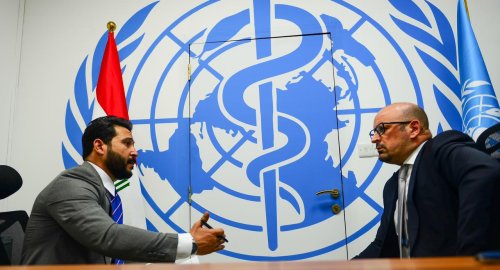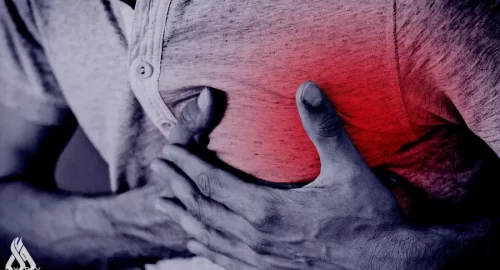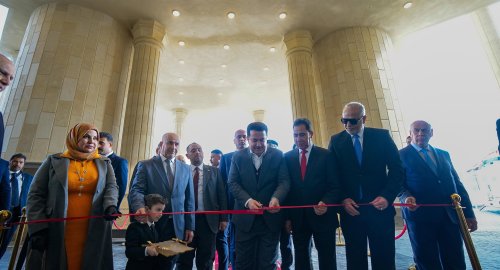
U.S. Plans to End Public Health Emergency for Covid in May

- 31-01-2023, 10:25
INA- sources
The Biden administration plans to let the coronavirus public health emergency expire in May, the White House said on Monday, a sign that federal officials believe the pandemic has moved into a new, less dire phase.
The move carries both symbolic weight and real-world consequences. Millions of Americans have received free Covid tests, treatments and vaccines during the pandemic, and not all of that will continue to be free once the emergency is over. The White House wants to keep the emergency in place for several more months so hospitals, health care providers and health officials can prepare for a host of changes when it ends, officials said.
An average of more than 500 people in the United States are still dying from Covid-19 each day, about twice the number of deaths per day during a bad flu season. But at the three-year mark, the coronavirus is no longer upending everyday life to the extent it once did, partly because much of the population has at least some protection against the virus from vaccinations and prior infections.
Still, the White House said on Monday that the nation needed an orderly transition out of the public health emergency. The administration said it also intended to allow a separate declaration of a national emergency to expire on the same day, May 11.
“An abrupt end to the emergency declarations would create wide-ranging chaos and uncertainty throughout the health care system — for states, for hospitals and doctors’ offices, and, most importantly, for tens of millions of Americans,” the White House said in a statement.
The back and forth signaled what is likely to be a protracted political battle between House Republicans and the White House over its handling of the pandemic. Republican lawmakers hope to put the Biden administration on the defensive, claiming it spent extravagantly in the name of battling the coronavirus.
“Rather than waiting until May 11, the Biden administration should join us now in immediately ending this declaration,” Representative Steve Scalise, Republican of Louisiana and the majority leader, said in a statement. “The days of the Biden administration being able to hide behind Covid to waste billions of taxpayer dollars on their unrelated, radical agenda are over.”
The White House argues that it is only because of federal Covid policies mandating free tests, treatments and vaccines that the pandemic is now under better control. Covid was the third-leading cause of death from 2020 through mid-2022; now it is no longer among the top five killers, federal officials said.
The public health emergency was first declared by the Trump administration in January 2020, and it has been renewed every 90 days since then. The Biden administration had pledged to alert states 60 days before ending it. The emergency was last renewed earlier in January, and many state health officials expected it would be allowed to expire in mid-April.
Ending the emergency will prompt complex changes in the cost of Covid tests and treatments that Americans are accustomed to getting for free. Any charges they face will vary depending on whether they have private insurance, Medicare coverage, Medicaid coverage or no health insurance. What state they live in could also be a factor.
Still, the consequences may not be quite as dramatic as public health experts once feared. Medicaid enrollment expanded greatly during the pandemic because low-income Americans were kept in the program for as long as the public health emergency was active.
But a congressional spending package enacted in December effectively broke that link, instead setting an April deadline when states will begin losing additional funding for Medicaid coverage. State officials are likely to gradually remove Americans from Medicaid rolls this year beginning then. That transition avoids a more sudden removal of millions of poor Americans from their health coverage.
By reconfiguring that expensive policy, Congress was able to use the projected savings to pay for expanded Medicaid benefits for children, postpartum mothers and residents of U.S. territories.
The December legislation also extended coverage for telehealth visits for Medicare recipients through 2024. Telemedicine proved a lifeline for many during the pandemic, and that coverage would have ended when the emergency was lifted.
Still, other services might prove more costly to Americans, particularly those with no insurance. People with private health insurance or Medicare coverage have been eligible for eight free coronavirus tests each month. Insurers were required to cover tests, even if they were administered by providers that were not part of their networks. Once the emergency ends, some Americans will end up paying out of pocket for those tests.
source: newyork times
Prime Minister inaugurates new Nineveh Governorate building
- politics
- 04:30
Al-Sudani launches construction of North Thermal Power Plant
- politics
- 12:03
US Central Command: We killed ISIS terrorist leader Abu Yusuf in Syria
- International
- 24/12/20
Liverpool compete with Real Madrid to sign Olympique Lyonnais star
- Security
- 24/12/19
ISC, ADX discuss Strengthening Economic Ties
- Economy
- 24/12/16
Iraq assumes presidency of Arab Investment Company’s Executive Board
- Economy
- 24/12/17












